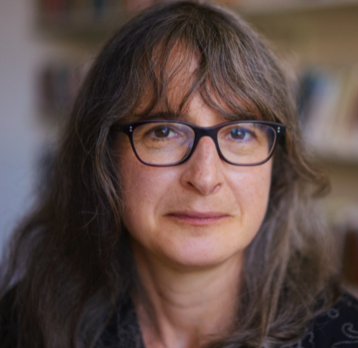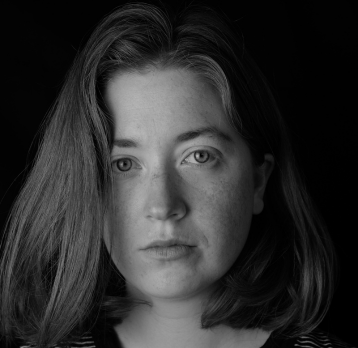Writing a Literary Novel Workshop

Course Information
Where: Online
Date: TBA
Duration: 8 months
Skill level: Advanced
Frequency: Monthly
Sessions: 8
Price: £3,750
Payment plans available
Register your interest to be notified when applications reopen.
A Novel and Writer Transformation Programme
This immersive, deep-dive course values serious play as the engine of art, and allows space for experimentation and innovation as you progress a novel under the guidance of leading novelists and creative educators.
Over eight months, challenge expectations, rethink approaches and get to know your writing process from the inside out. You’ll learn to ask the right questions to move your novel forward, so your tutor can focus on what you really need to know to refine and recalibrate your work.
There is space for freedom and wildness in this course, as we encourage taking creative risks within a structure that still leads to measurable progress. You will work alongside a small group of fellow writers, and learn how peer exchange sits at the heart of developing your writerly intelligence. Experience a gradual process of iterative transformation in your ideas and voice, as you develop a more bold and confident practice as a novelist.
There will be eight monthly sessions divided into four weekly parts, running as follows:
- Week 1 - ‘creative playground’ activities to stimulate creativity, challenge habits, build writing muscles and inject fun into the process. After completing short practical writing tasks, share thoughts on what you discovered about yourself as a writer and what you can take into your novel. The tutor reflects on your discoveries and breakthroughs.
- Weeks 2 and 3 - focused writing-development time to progress your novel. You could produce new work or build on ideas developed through the playground week – for example you might rework the start of your novel based on a new voice you discovered in the play. Share 2-6,000 words from your novel each month for peer review. We’ll also learn from a short experimental novel each month.
- Week 4 - close-reading week. Read extracts of your peers’ developing novels and offer responses. The aim is to hone your self-editing skills and reflect on your work-in-progress. This reading is at least as important to the writerly development of the reader as the writer.
You’ll be given a free one-year digital subscription to Granta magazine, as well as access to curated extracts from Granta’s award-winning books, and the magazine, podcast and video archive. Throughout the course there is regular, monthly insight from Sarah Moss, guest authors, your course tutor and Granta staff through live and pre-recorded Zoom calls.
You’ll finish the course with at least 20-30,000 words of your novel, greater proficiency and confidence in yourself as a writer and editor, plus a new approach to your writing practice that makes you a more self-reliant and original novelist with finishing power beyond this project.
Entry is by application to ensure you get the most out of the course. Answers to commonly asked questions can be found in the Frequently Asked Questions page.
Course completion opens up our Alumni Space, which provides ongoing access to industry professionals, including authors, Granta editors and literary agents.
Video | Sarah Moss
Sarah is the author of eight novels, two memoirs, numerous essays, and academic work on Romanticism, travel, food and gender. Her work has been listed for prizes including the Women’s Prize for Fiction, the Royal Society of Literature Ondaatje Prize and the Wellcome Prize. Summerwater was a Sunday Times top ten bestseller and is being filmed for broadcast on Channel 4 in 2025.
Sarah Moss | on Novel Writing
My writing career started in academia. I did an English Literature degree and then a doctorate in romantic poetry.
At the time, creative writing teaching didn’t really exist in British universities, and it’s contradictory to say, given that I now do teach creative writing in Irish and British universities, but I’m not really sorry that I did English literature first.
I think that training in reading and critical analysis set me up very, very well as a writer, and I went on from that to a teaching career in eighteenth, nineteenth century lit. But meanwhile, I was quietly writing fiction on the side, and I think that gave me permission to be as playful and experimental as I wanted, because the stakes were very low.
I was getting my professional kudos from publishing in a very different way and writing very different stuff. So it really was just play, just wildness, just fun, really, for the first two novels, and then I started to edge over into creative writing teaching, partly because I was finding that what I was saying when I was teaching literature was dissonant from what I was actually doing.
So, you know, we’d read Jane Eyre, and I’d say to the student, hey, you know this isn’t really about whether you fancy Rochester or whether you like Jane. And then I was writing fiction, I absolutely wanted characters, wanted readers to be feeling deeply about the characters.
And that gap got wider, and the creative teaching began to look more and more fun. So I gradually, kind of edged over. And I did both for quite a long time. I taught English Literature and Creative Writing, but as my own practice settled very much in the writing and not in the academic lit crit, my teaching came with it, but I think the background in teaching English literature meant that I was able to bring a different kind of expertise to the teaching of creative writing, and I was very clear about why I wanted to teach creative writing and how and what I wanted to do.
So that’s been that’s been exciting. I’m not interested in teaching people to write the way I write. I’m interested in helping them learn to write the way they write, which is not the model of having the expert come in and tell you how to do it. It’s having the expert come in and work with you on how you do it.
And of course, creativity thrives on constraint. We need to understand our traditions. We need to know our own artistic lineage, and there some more formal teaching can be useful.
But the exciting thing about teaching creative writing is that you’re really holding and supporting and encouraging people and directing them to find out what they do, which is not what anybody else does.
The course falls into two streams. Let’s go for things, moving along, organically flowing, one of which is the playground, which is an ongoing experiment, game about writing, artistic form, invention, experiment and play, because that’s where the wildness gets in.
That’s what we really need. Play is the bit that AI will never be able to do, and it’s really the spring of art and craft.
But we also need structures, tradition, a measure of hard work, close attention to our own and each other’s reading and writing, and this course moves back and forth between those two intimately related practices.
Course Syllabus
Explore the power of play and metaphor in novel-writing, and find out how collaboration and close-reading can transfigure your creative practice. Leave the session with increased awareness of your current writing process and possible new approaches.
Chart your starting and likely end points for this novel, and play around with time. Challenge what you think you know about the novel you are writing. Produce a map for your novel, reflect on your approach to time, and gain necessary distance from your writing. Meet with your tutor for a one-on-one tutorial.
Reassess your approach to realism and your take on reader-expectations. Develop greater awareness of your relationship with your reader. From this month onwards, we will take apart a bold contemporary novel as we examine the session topics. This session focuses on Sharks in the Time of Saviours by Kawai Strong Washburn.
Experiment with new ways to depict people in your novel, thinking about psychology, action, viewpoints and retrospection. How do you create genuine, true-to-life characters that feel emotionally resonant? We will read and learn from Weather by Jenny Offill.
Looking back, looking forward. Many projects slow in the middle. It can be exciting to recognise the moment of change at this point as well as the importance of perseverance in long-form prose. For this and future projects, how can you learn to distinguish a rough patch from an impassable bog, and what is the compassionate and constructive response to each? Meet with your tutor for a one-on-one tutorial, reflect on your progress, and learn from Spent Light by Lara Pawson.
Become more clear-thinking in the way you use tension and pace in your novel, and play with their effect on your reader. We will look at balancing tension, pace and patience, and read and reflect on We Have Always Lived in the Castle by Shirley Jackson. Attend a group Zoom call with a guest author.
How can we innovate endings as novelists, and how can we reach beyond archetypes for meaning, aiming instead for wildness and freedom? We will focus on the endings of all our chosen novels. There will be a group Zoom call with a Granta editor.
What makes a confident writer and self-editor? How does prose become ‘exquisite’? Discover editing without hurting, and ways to maintain momentum with your novel after the course ends. Meet with your tutor for a final one-on-one tutorial, and participate in a group Zoom call with a guest literary agent.
Throughout the course, enjoy exclusive video interviews, podcasts and transcripts of conversations between editors and authors including Ingrid Persaud, Carys Davies, Ben Pester, Sophie Kemp, and Jenny Offill.
You will also be able to attend live Zoom Q&As with publishing industry guests during the eight months.
This course requires 10-12 hours per week. Find out more about the course and teaching method from our education partners Professional Writing Academy.
Sarah Moss | Course Director

Sarah has designed and taught literature and writing programmes for twenty years. As Director of the Writing Programme at the University of Warwick, she led a curriculum centred on experiment, serious play and creative failure, which are the roots of her own writing practice. As co-ordinator of the MA and MFA programmes in Creative Writing at UCD, she has developed an approach to creative pedagogy more interested in practice than product, teaching students to make art and literature in and of their own times and places before counting words and second-guessing a marketplace. She reviews contemporary fiction for publications including The Guardian, the New York Times, the Irish Times and the Times Literary Supplement.
Sarah is the author of eight novels, two memoirs, numerous essays, and academic work on Romanticism, travel, food and gender. Her work has been listed for prizes including the Women’s Prize for Fiction, the Royal Society of Literature Ondaatje Prize and the Wellcome Prize. Summerwater was a Sunday Times top ten bestseller and is being filmed for broadcast on Channel 4 in 2025. She has a BA, MSt. and doctorate from the University of Oxford and is a Fellow of the Royal Society of Literature.
Fiona Mozley | Course Tutor

Fiona Mozley is the author of two novels, Elmet and Hot Stew, and several short stories. She is the winner of a Somerset Maugham Award and The Polari Prize, has been shortlisted for The Booker Prize, The Ondaatje Prize and The Sunday Times Young Writer of the Year Award. She was longlisted for the Dylan Thomas Prize and The Women’s Prize. Her writing has appeared in The New York Times, The Guardian, The Financial Times, The New Statesman and British Vogue. She is a Fellow of the Royal Society of Literature and lives in Edinburgh.